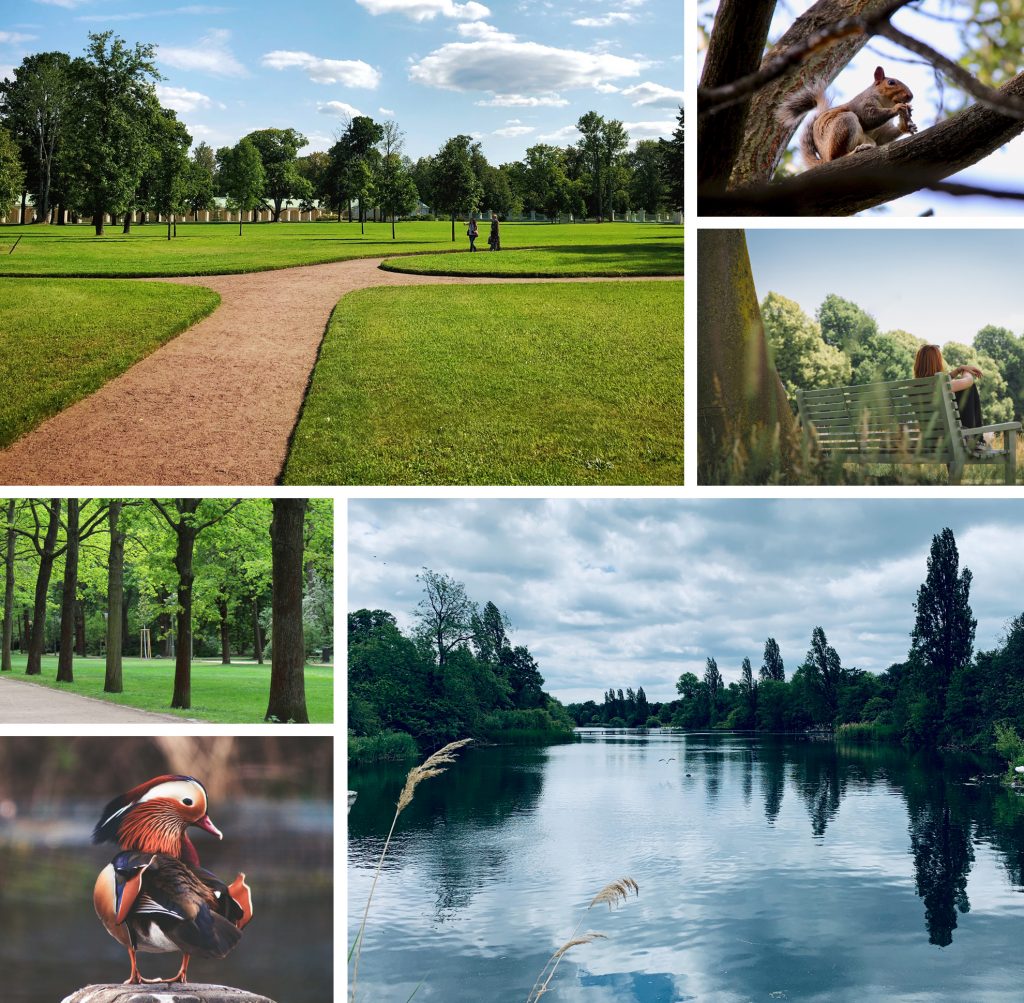The post 10 Things to Do in New York appeared first on .
]]>Notice: file_get_contents(): Read of 12288 bytes failed with errno=21 Is a directory in /home/volangua/blog/web/wp/wp-includes/functions.php on line 4593
Notice: Error when decoding a JSON file at path /home/volangua/blog/web/app/themes/volangua/resources: Syntax error in /home/volangua/blog/web/wp/wp-includes/functions.php on line 4596
Notice: file_get_contents(): Read of 12288 bytes failed with errno=21 Is a directory in /home/volangua/blog/web/wp/wp-includes/functions.php on line 4593
Notice: Error when decoding a JSON file at path /home/volangua/blog/web/app/themes/volangua/resources: Syntax error in /home/volangua/blog/web/wp/wp-includes/functions.php on line 4596
1. Get a Head for Heights
There are several places in New York that have the most amazing observations decks where you can get a fantastic view of the impressive and iconic skyline. First up is the Empire State Building and fans of Sleepless in Seattle will never forget the great moment that Tom Hanks met Meg Ryan in a climax to the timeless love story. In real life the venue is just as impressive and somewhere you really want to say you have been if you take the time to go to NY. Secondly, there is Top of the Rock, which is the observation deck at Rockefeller Center. Finally, the One World Observatory which you will find at the Freedom Tower, most have elevators, but those up for a challenge can do some serious stair work.

2. The Statue of Liberty
Of course, this is another considerable landmark that you have to see if you are in the area. While you are there you should check out Ellis Island and the two islands will take you about five hours so leave yourself plenty of time. The boat ride out provides another chance to soak up views you will never have seen before, so do not forget the camera. You can either opt to book in with a tour guide once you get there or take a self-guided tour, there are plenty to choose from.
[soliloquy id=”141″]
3. Central Park
Used in so many TV and movie locations, Central Park is one of the most famous green spaces in the world. Do not be fooled into thinking this is a small piece of grass in the middle of a city, it is vast and has zoos, lakes, rides, sculptures and loads of space to sit and chill. Again, you can take yourself off on a little wander or book in with one of the many tour guides. Carriage rides are popular and available most of the time for those looking for a romantic interlude.
[soliloquy id=”122″]
4. Time Square
If you happen to be in New York on New Year’s Eve, then you have the chance to be part of the iconic ball drop at midnight, but Times Square has so much more to offer it is well worth seeing no matter when you happen to visit.

5. Brooklyn Bridge
Ok, to be fair there are so many amazing landmarks in New York you could run yourself ragged trying to get to them all but, this is another legendary bridge that everyone has heard of, even if you were never quite sure exactly where it was located. Make time to walk across in the day and check out the lights by night.

6. The Staten Island Ferry
The free Staten Island Ferry which runs from Manhattan to Staten Island runs 24 hours a day every day and is another must-do experience. There is something magical about a ferry ride, and this one is accompanied by incredible views of the Statue of Liberty and Lower Manhattan. The journey takes 25 minutes each way, but at peak times you will have to wait over an hour to get on, and this is not a ferry that services the Statue of Liberty, you will need one of the others.

7. Catch Some Sport
New York has many big-time sporting teams, so there is always some exciting game or other to watch. The New York Giants, The Mets, The New York Knicks to name just a few. If you are into running, then the New York Marathon is a bucket list item for many people but be warned places are hard to secure. Each year it is also the home of the US Open Tennis Championship if you love a bit of courtside action, so be sure to check your timings if there is something you really want to see.
[soliloquy id=”159″]
8. Eat
Now obviously, you were planning to grab some food while you were visiting, but there is more than just your hotel offering food! Begin by checking out the many different eateries located along every street and you will find some of the most classic New York foods. Start the day with a coffee and a bagel, lunch on pastrami or dine on pizza. There are just so many different coffee houses and restaurants you will be seriously spoilt for choice.

9. Take to the Water
If you fancy combining your meal with some more sightseeing, then you can head out on a night-time boat cruise with dinner and music. There is a massive difference between the daylight skyline and the darkness of night when it is all lit up. You really need to see both, and the water is an excellent place to appreciate the many differences. There are plenty of boats all offering to ferry you around, from private hire to hop-on-hop-off boats that will allow you to explore many different parts of the area.

10/11 Memorial
In Lower Manhattan, there is a memorial to those who lost their lives during the events of 9/11. It is another place that most people will want to see, and although there is sadness, the memorial is a truly beautiful space to remember this tragic event. There is also the National September 11th Museum which offers documents, films and artefacts documenting the events as they unfolded on that fateful day. The memorial space is free to visit, but there is a cost for museum entrance.

The post 10 Things to Do in New York appeared first on .
]]>The post 10 Things to Do in London appeared first on .
]]>1. The London Eye
The London Eye was built to coincide with the millennium and is a massive Ferris wheel that stands by the side of the of the River Thames. It is one of the must-do activities for any visit to the capital, and the views are sensational as you rotate slowly and get a bird’s eye view. The pods are designed to be shared with other visitors, but for an extraordinary experience, you can purchase tickets for a private pod, making it an excellent place for a romantic proposal. When dusk falls, the wheel displays amazing lights that change depending on the season, and this iconic location features heavily in the New Year’s firework display.

2. Harrods
Perhaps the most famous store in London. Set across many floors the Christmas display is legendary and the food hall is a real delight to the eyes with many delicacies from cheese to pate, marmalade to fresh meat and so much more. There is something for everyone here, from toys to clothing and even a gift or three for the family dog.

3. Buckingham Palace
While you can’t actually head inside, it is a tradition of visiting London that you take a stroll up Horse Guard’s Parade to the palace. The home of Queen Elizabeth and other members of the Royal Family the huge 775 room venue also has the most extensive private gardens in the capital. Watch the changing of the guard or stand back and admire the ornate design of the building. It has been home to the monarch since 1837. Once you have visited, you can take a walk in the beautiful Green Park and enjoy the feeling of being one with nature.

4. Westminster
Once you have seen the home of the Queen, you might want to see the political centre of the country. Westminster not only has the Houses of Parliament, but it is all home to Big Ben, the world-famous clock that stands guard over the city. It is actually the bell that is named Big Ben, and it still chimes every hour. Also here is Westminster Abbey which is open to the public and well worth a look around, and Parliament Square with its status of Winston Churchill, Nelson Mandela and other politically influential people.

5. Thames Cruise
The longest river in England, the Thames winds its way out to the North Sea, but you can take a cruise and stay in the London part. There are lots of different companies offering guided cruises, and it is a fantastic way to see the sights of London. You can take a nighttime journey when the city is lit up, or you can have afternoon tea or a meal on one of the restaurant-style cruises.

6. Platform 9 and 3/4
This might not appeal to everyone, but for fans of the Harry Potter books and films, it is a must-see. The platform has been created at King’s Cross station which has been standing since 1852 but has undergone some serious renovation work. There is a hidden tunnel that features artworks that light up as you walk through. On Platform 9 and 3/4 you will find the disappearing luggage trolley which you can have your picture taken with, so be sure you are wearing your house colours for this momentous occasion.

7. Hyde Park
Perhaps the most famous of all the London Parks, this leafy green space is most famous for Speaker’s Corner. Every week you will find performers, speakers and political activists here having their say, and the park has hosted more than its fair share of demonstrations and rallies on all matter of subjects.

8. Camden Market
Unsurprisingly found in the Camden area of the city, Camden Market is a whirl of colour and noise and an unforgettable experience. Hundreds of stalls set up to sell everything you can imagine from vintage clothing to fruit and veg and everything in between. It is a bustling venue that will appeal to everyone, and it is set near Camden Lock and Regent’s Canal, both of which are lovely places for a walk to escape the world.

9. Baker Street
Home of the best detective in the world, 221B is the famous address for Sherlock Holmes and his sidekick Dr Watson. The original creation was found in the pages of the Arthur Conan Doyle books, but since then he has been revived numerous times for film and television with the BBC series stealing ratings. Since this aired, you will find the Sherlock Holmes museum, which is located near the underground, and the Sherlock waxwork is just around the corner in the internationally known Madam Tussauds museum. Nearby you will also find Primrose Hill and Regent’s Park which are both a breath of fresh air in an otherwise bustling city.

10. The O2
Formerly known as the Millennium Dome this massive construct formed part of the New Millennium celebrations in the capital. It has since been renamed the O2 and is now home to a range of stage shows and live music concerts. There are many different restaurants on the site, and there is something to see every night of the year. If you fancy something a little different, you can also climb to the top and walk on the domed roof which affords you some magnificent views of the city.
The post 10 Things to Do in London appeared first on .
]]>The post 10 reasons to study a language abroad appeared first on .
]]>If you want to learn a new language and you’re trying to work out whether to do so at home or abroad, I’m here to convince you to take the road less travelled. Studying abroad can be an intimidating thought: you’ll be away from everything and everybody you know, so you’ll essentially be jumping in at the deep end. Yet if you’re brave and make the leap into the unknown, the chances are you’ll not only master a new language quicker and more thoroughly, the experience will also immeasurably enrich your life.
You’ll experience the best of any destination
When you visit a city as a tourist, it can be hard to know how to get the best out of it. We’ve all ended up in situations where we find ourselves at an over-priced restaurant with sticky tables and suspiciously long menus. However, when you live and study abroad, you slowly become an expert on your new home. If you are unsure where to go, locals give the best advice; trust me when I say that people love to air their opinion about where does the best local dishes and offer up warnings about which cinema is outrageously priced and smells of feet. Live and study abroad and interact with the local inhabitants, and before long, you’ll know which café has the flakiest pastries and the best coffee, which viewpoint offers the dreamiest vistas over the city, and where you definitely shouldn’t attempt to go on a Saturday afternoon in the height of summer.

You’ll become so much more confident
I’m going to level with you right way: studying a foreign language abroad isn’t always easy, yet it is our most difficult challenges that make us who we become. Food writer and chef Anthony Bourdain said it best when he explained ‘Travel isn’t always pretty. It isn’t always comfortable. Sometimes it hurts, it even breaks your heart. But that’s okay. The journey changes you; it should change you. It leaves marks on your memory, on your consciousness, on your heart, and on your body.’ Not only will you learn how to look after yourself away from your home comforts, but if you choose to study abroad, you will become more self-assured about your ability to communicate with a diverse range of people and to make new friends. Your maturity, empathy and independence will blossom, and you’ll be confident that you can thrive anywhere in the world.
You’ll understand life better
I know it could seem like I’m exaggerating on this point, but I’m really not. Studying abroad not only gives you a deeper understanding of another culture, it actually helps you to learn more about human nature, politics, the environment and everything else in between. What’s more, since the travel bug is extremely infectious, once you’ve found your feet studying abroad, you’re likely to have the confidence to venture farther afield and learn how people live all over the world. As musician, writer and actor Henry Rollins so aptly put it ‘there are lessons that you can’t get out of a book that are waiting for you at the other end of that flight’.
You’ll make lifelong friends
When you’re thrown in together with people also in the same situation as you, you tend to connect on a deeper level than if you say, come across them once at a party; in no situation is this truer than when you find yourself studying abroad. Your fellow students will also be a long way from home, and they’re likely to be suffering the same anxieties about getting by in an unfamiliar environment as you are. You’ll be able to easily relate to each other about how you are feeling, and to share the joys and frustrations of learning a new language and navigating a new life. You’ll likely be spending large quantities of time together both in and out of the classroom. What’s more, the fact that you will also get to share the heady excitement of discovering a new country together, having adventures and making lifelong memories, will serve to cement your bond. It’s easy to see why many foreign language students who studied together abroad remain friends for life.

You’ll be practicing every single day
There is nothing that compares to having to practice a new language every single day, and when you’re studying abroad, there’s often no choice. You are boarding busses and trains (not to mention having to first negotiate the ticketing system) to get to class; you’re dropping by a local café for lunch and ordering food; you’re trying to understand the machines in your local gym without sustaining a permanent injury. In short, you have to practice communicating all the time just to get by. The repetition of anything at all, whether it’s riding a bike or learning a new language, helps to make it into a habit, and when something is a habit you no longer have to think about doing it – it simply becomes second nature. It’s true what they say, practice really does make perfect.
Your employability will skyrocket
There’s no two ways about it: employers love linguists, and they love linguists who have studied abroad the most. Not only do language leaners bring the benefits of the language in itself, meaning they can communicate seamlessly with foreign clients and help a business expand across borders, they also hold immense value in other ways. A language learner has demonstrated that they not only have the mental dexterity needed to master a second language, but they likely have other unique qualities too. Language learners need to be hard working, patient and extremely determined to succeed: employers know this. Linguists who have attended language schools abroad display more desirable qualities still. They have shown resourcefulness (they can navigate a foreign country without starving or getting hit by a bus), courage (they have stepped well out of their comfort zone and still thrived), and open-mindedness (they have been willing to embrace a whole new culture, and been excited to live among unfamiliar customs and ways of life).
You’ll discover new hobbies and interests
Different environments open up entirely new possibilities of how you can spend your spare time. Learning English in Wales might be the catalyst to discovering you make a formidable rugby player or studying Spanish in Seville may lead to a promising Flamenco career. Ok, maybe I’m exaggerating just a tad, but there’s no doubt that becoming immersed in a new country and culture will lead to exciting new discoveries about what it is you enjoy. Firstly, you’ll be living in a different physical environment, so if, say, you’re used to living inland in a bustling city and you find yourself studying in the countryside or by the sea, you will suddenly have access to watersports, mountain biking or hiking. Secondly, you’ll be living in a different culture, so if you want to try out local hobbies and interests, you’ll have the best instructors on hand.

Your speaking and understanding will become nuanced
We’ve all come across those language students who speak perfectly – only somehow it all sounds a bit stilted. I firmly believe that the only way sounding like a language student robot can be avoided, is to live and study abroad. Why learn a language if you’re not going to pick up and enjoy the quirky little words, expressions and phrases that give it character and meaning. It’s so important if you want to truly fit in and communicate in a way that seems natural and relaxed. Plus, how else will you pick up gems like the French ‘l’esprit de l’escalier’, which translates literally as ‘spirit of the staircase’, meaning realising exactly what you want to say but only as you’re leaving the party – i.e. thinking of the perfect comeback too late.
You’ll be unavoidably immersed in your new language
Never underestimate the power of popular culture. Television, film, magazines, newspapers, advertising: all of these things envelop you when you study a new language in a country where it’s spoken widely. Not only that, but you’ll overhear friends gossiping on the bus, witness a child having a tantrum in the supermarket and being told off by his or her exasperated parents, and be forced to listen to the nation’s current favourite pop song every time you take a taxi. In this way, language courses abroad help you improve by the most painless method of learning there is: osmosis.
You’ll get right to the heart of another culture
It’s one thing learning a new language as an academic skill, quite another to become wrapped up in the culture that speaks it. Living abroad, you’ll get to see the cultural and religious sites that mean so much to a country’s inhabitants; get to taste, and even learn how to cook, their food; and get to experience their theatre, music, dance and festivals first hand. What’s more, over time you will pick up on the correct non-verbal ways to greet others, or to show appreciation for a delicious plate of food. You’ll learn when to take your shoes off and when to cover your shoulders up. Slowly and surely, these small but fundamental things that form the backbone of a culture will become second nature, and you’ll start to feel at home. In this way, you’ll learn so much more about a culture and the significance of its language than you could possibly learn at home. Not all classrooms have four walls. (1,592)

The post 10 reasons to study a language abroad appeared first on .
]]>The post The 10 easiest languages to learn appeared first on .
]]>But what is the easiest language to learn? That depends on, well, everything actually. Which language or languages you already speak, what skills you naturally excel at and, since learning new languages gets harder as we get older, even your age can impact how quickly you can pick up a new language and run with it. In short, there is no one language that is guaranteed to be a breeze for everyone and no one single easiest way to learn a language – sorry about that. On the flipside, because all languages are unique in their structure, you should be able to find one that’s perfect for you. And if you’re not quite sure yet, the list below is to help you find your perfect linguistic match.
Spanish
‘Un lenguaje nuevo es una vida nueva’ is Spanish for ‘a new language is a new life’, and it’s certainly true that this energetic language is often equated with vivacity and passion. What’s more Spanish is one of the most widely known languages in the world, spoken in 20 countries from Guatemala to Gibraltar. In the United States alone, more than 41 million people speak Spanish as their first language. If you need further reasons to opt for this exciting Western romance language, it’s easy to learn because the grammar and sentence structure are relatively straightforward, particularly if you already speak French. And If you struggle mastering pronunciation, Spanish is a particularly apt choice: it’s a phonetic language, meaning words sound the way they are spelt – though you might want to start practising rolling your ‘r’s.

Italian
If you’re keen to spend more time in the birthplace of pizza – let’s be honest, who isn’t? – then I have good news: Italian is one of the easier languages to pick up. The internationally famous cuisine of Italy aside, this elegant language is spoken by a staggering 57.7 million people worldwide from Switzerland to Slovenia. Of all the romance languages, it would be fair to argue that it’s the most ‘romantic’, and its musical quality makes it easy to both speak and understand. As with Spanish, words are pronounced much as they are written; and if you already speak Spanish, or indeed French, you can expect to find the vocabulary of this Latin-based language intuitive.

Dutch
A country chequered with tulip fields, windmills and canals and famous for its traditional, quirky wooden shoes and delicious mild cheeses, beautiful Holland is largely Dutch speaking. If that isn’t incentive enough to learn, the language is also native to Flanders, is the national language of Suriname, South America, and spoken in Aruba and the Dutch Antilles in the Caribbean. For a language that sounds really very different, the structure, syntax and vocabulary of Dutch are all surprisingly similar to English – but the grammar is significantly easier. Oh the joys of simple sentence structure!

Esperanto
Try and imagine you are inventing a new language: would you want to make it easy or hard to master? Unless you’re particularly sadistic, I’m going to presume you answered ‘easy’, and this is precisely the reason Esperanto is so uniquely simple to master: it was designed to be so. Esperanto, which translates literally as ‘one who hopes’, was created in the late 19th century by L.L. Zamenhof as a universal second language that would facilitate international communication and thus foster peace. The grammar is painless, the rules easy to follow and many of the words recognisably derive from other languages. Some people argue that Esperanto doesn’t count because it’s ‘made up’, but I’m fairly sure the 2 million people for who speak it worldwide would disagree. In any case, it could make an excellent starting point for the more lackadaisical language learners among us who don’t want to spend hours slaving over verb tenses.
French
If you fancy anything from strolling the elegant streets of Paris to skiing in Quebec Province or lemur spotting in Madagascar, then French – spoken in an incredible 29 countries – could be the language for you. William the Conqueror’s famous victory over the Anglo Saxons in 1066 means that much of formal English derives from French words; in fact, linguists estimate that an astonishing 28 per cent of English words are originally of French origin. Thus for the British in particular, learning French vocabulary should be a breeze. If you happen to hail from elsewhere, don’t panic. Apart from French’s pesky gendered nouns and sometimes tricky pronunciation, because of its relatively simple grammar and sentence structure, the internationally recognised language of love is actually one of the easier European languages to acquire.

German
I’m not going to lie to you: German has its challenges. A single noun can be almost unfeasibly long, an example of this being Schweinefleischetikettierungsüberwachungsaufgabenübertragungsgesetz. Yes, that’s just one single word. It translates literally as ‘legislative law for the monitoring of pork-meat labeling’, so as you can imagine, German can be an unwieldy language to wrap your tongue around. Other difficulties include the gendering of words, verb conjugations, irregular and regular verbs and the use of four cases. However, don’t write it off just yet, particularly if you’re an English speaker: linguists consider the grammar to be, on the whole, very logical, and as a Western Germanic language, many words overlap with English.
Swedish
Another language perfect for those who call English their native tongue, Swedish is arguably the easiest language to learn for English speakers. It follows a subject, object, verb structure and shares the root of many British words, like mus and mouse, midnatt and midnight. Arguably, the disadvantage of choosing this musical language is that it isn’t very widely spoken. Although once reaching as far as Lativia, you’ll only find it now in Sweden and Finland, where it is one of the country’s two national languages. Yet if the Swedish tradition of daily Fika (reflective time to chat over coffee, cake and cinnamon buns) doesn’t tempt you to learn its language, its other poetically descriptive words might. A language that has a word to describe a person who always wants to have their face in a photo, linslus, and for getting drunk in your underwear with no intention of going out, kalsarikanit, is surely worth the effort of mastering.

Japanese
Japanese has gotten a bad reputation with western language learners and people will happily list the reasons why you shouldn’t bother. They’re wrong. Here are the reasons why I’ve included it among the easiest foreign languages to learn. Firstly, the phonology (the way it sounds) is relatively simple and it isn’t a tonal language (i.e. your tone doesn’t change the meaning of any given sentence). Secondly, nouns are not gendered: you do not have to panic mid sentence trying to work out whether the library is male or female: it is neither and it’s very happy that way. Thirdly, even Kanji – the thought of which petrifies languages students worldwide – isn’t so bad; technology nowadays means you don’t have to memorise the strokes of Kanji anymore, you can just type it in, and if you forget a Kanji, you can just look it up on your phone. Boom! Japanese mastered. Well, not quite, but it’s certainly not as difficult as everybody thinks.
Portuguese
Not for the faint hearted, the Portuguese language presents a mixed bag of benefits and drawbacks to new language learners. The nasal vowels are notoriously difficult to perfect, and yet the musical, rhythmic flow of the language makes sentences relatively easy to speak. While understanding the written word is much simpler if you already have a firm grasp of Spanish, the wildly different pronunciation prevents it from being a mutually understandable language. Despite the fact that English speakers will have a head start because they recognise many of the commonly used words, Portuguese learners of any native language may come unstuck by the sheer fact of it being a language that differs hugely wherever it is spoken. The contradictions are seemingly endless, but that doesn’t stop it being an excellent first choice for new learners in search of a challenge.

Indonesian
Hear me out: there are a couple of excellent reasons I have chosen Indonesian to be on this list. Firstly, it is a little–known fact that this beautiful language is one of the top ten most spoken in the world: it’s the lingua franca for the whole of Indonesia, which is the fourth most populated country on the planet. What’s more, it enjoys a relatively simple grammar system and is peppered with words inherited from Dutch due to years of colonisation and with Portuguese as a consequence of centuries of trade. If you are keen to get a more exotic language down pat or are ready for a South East Asian adventure, then Indonesian might be the way to go.
Summary
I guess it’s become clear by now that languages are difficult or easy depending on your unique circumstances and skillset. Above all, it’s important to choose a language that will not only play to your strengths but is linked to a culture or cultures that particularly awake your interest, and that sounds like sweet music to your ears. I hope you have discovered a language on that list to dive headfirst into, and I’d be fascinated to hear what you think is the easiest language to learn and why, so let me know in the comments below.
The post The 10 easiest languages to learn appeared first on .
]]>